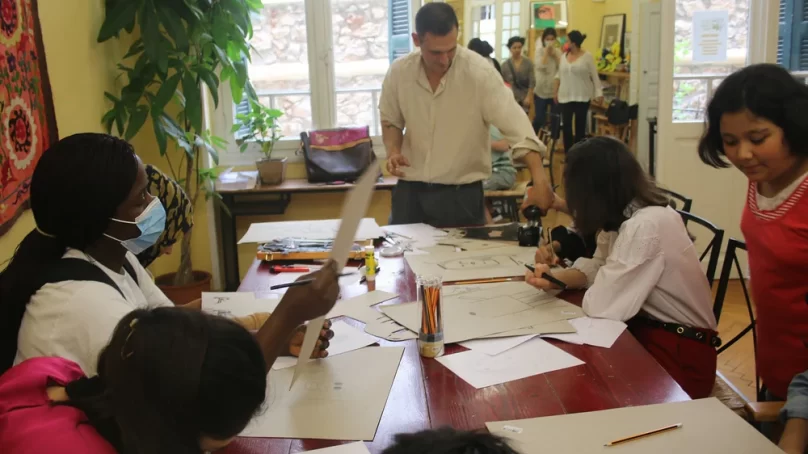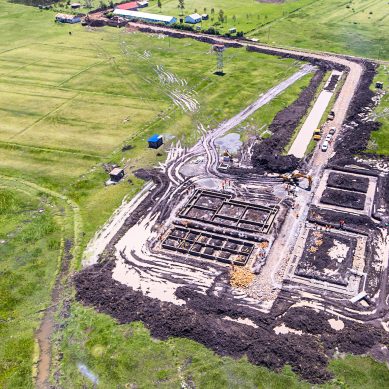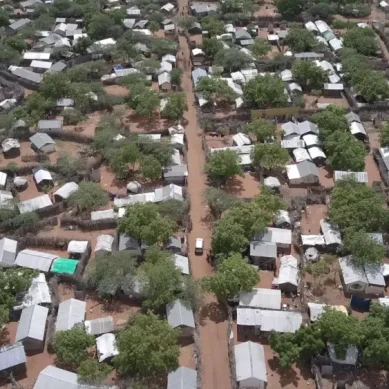
Greece’s special treatment of Ukrainians and discrimination of African and Asian refugees questioned
Refugees from Afghanistan, the Democratic Republic of Congo, Iran, and Syria have long faced dismal living conditions while struggling to access asylum procedures and essential services in Greece. According to NGOs and human rights groups, Greece’s reception of Ukrainians escaping Russia’s invasion shows another way is possible – if only there was the political will.
The number of Ukrainians in Greece is relatively small compared to countries such as Poland and Germany, which host around one million and 1.5 to two million Ukrainians respectively. Overall, there are an estimated 6.4 million refugees from Ukraine across Europe, more than 90 per cent of whom are women and children.
Around 72,000 Ukrainians have entered Greece since Russia began its offensive at the end of February, and more than 18,000 have applied for protection under a never-before-used EU Temporary Protection Directive (TPD) that gives people escaping the fighting the right to live, work, and access essential services in EU member states for up to two years.
The reception of Ukrainians has been “astonishingly positive”, Kleio Nikolopoulou, an advocacy officer and lawyer for the Greek Council for Refugees, says. However, she added, it is “so frustrating” that this system isn’t available to other refugees.
Ukrainians – who Greece’s Migration Minister Notis Mitarachi referred to as “real refugees” in March – are able to enter Greece without a visa, and the Greek government has created an easy-to-use online platform for them to make appointments to register for protection status. Once registered, they are given social security and tax numbers that allow them to access the labour market, healthcare and housing and food support, according to a recent report by the Greek Council for Refugees, Oxfam International and Save the Children.
In comparison, around 7,000 asylum seekers and migrants have entered Greece by crossing the Aegean Sea or the land border between Greece and Turkey so far this year. The number is a far cry from the one million people – mostly Syrian refugees – who crossed from Turkey to Greece in 2015 and 2016, and the tens of thousands who entered annually in subsequent years.
Since March 2020, those numbers have dropped significantly as Greek authorities have systematically pushed asylum seekers and migrants back from the country’s land and sea border – a practice that is illegal under international law. The pushbacks have been widely documented by journalists, human rights groups and digital investigators. But the Greek government denies they are taking place.
For those who do make it into the country, asylum procedures are “almost impossible to access”, with too few asylum centres accepting claims, and – until recently – a non-functioning online appointment platform, according to Nikolopoulou.
As a result, many people end up undocumented despite trying to apply for protection. This leaves them cut off from essential services such as healthcare and accommodation, as well as the labour market. And even people who do register as asylum seekers and receive refugee status face a bleak situation: The Greek government has been cutting back housing and financial support for refugees since 2019, leaving thousands of people facing destitution and homelessness.
According to Nikolopoulou, the Greek government has long blamed the shortcomings of the country’s asylum and migration reception system on technical issues and a lack of capacity. But the swift establishment of a more dignified system for Ukrainians has undermined that narrative, she said.
“[They] don’t want people [from Asia and Africa] to actually enter the country,” Nikolopoulou said. “It is so frustrating to see how differently [Ukrainians and non-Ukrainians] are being handled.”
Greece’s Ministry of Migration did not respond to questions submitted prior to publication. A spokesperson contacted by phone directed The New Humanitarian to public statements on the ministry’s press page that did not answer any specific questions.
Many Ukrainians who have come to Greece already had family and friends in the country, or came because – unlike some other EU countries – Greece has allowed those who left Ukraine during the two months before the start of Russian offensive in February to apply for protection, according to the Greek Council for Refugees, Oxfam International, and Save the Children report.
Maria Smahlii, 24, from Kyiv, arrived in Athens on February 20 for a holiday with her boyfriend. Four days later, they watched in shock and disbelief from afar as the war broke out. Smahlii and her boyfriend soon applied for temporary protection, a process she said was “quite easy”. But being in Greece, she also realised the procedures were easier for her than for people escaping conflicts in other parts of the world.
“It’s like a privilege because not every refugee from other countries has these important [tax and social security] numbers,” she sayss. “And that’s a disaster, actually, because like this you can’t survive.”
Olena Soinikova, 43, from Zaporizhzhia in southeastern Ukraine, said she and her family also came to Greece because they left Ukraine before February 24. She added that she feels Ukrainians have “more freedom” than other refugees, and not having access to the labour market would be extremely difficult. “We need to work,” she said.
“It’s like a privilege because not every refugee from other countries has these important tax and social security numbers.”
In contrast, the asylum system for those fleeing other countries has left many undocumented and vulnerable. Euphemille, a 35-year-old asylum seeker from Gabon who asked to go by her first name only, fled an abusive partner in her country, and arrived on the Greek island of Samos in 2017. Her first asylum application was rejected in June 2021. Over a year later, she is still struggling to register her new claim.
Euphemille was pregnant when she reached Greece and was soon transferred from Samos to the mainland. While she receives childcare and housing support from charitable organisations, Euphemille said it is “very difficult” to get by without governmental support or a social security number, which she can’t access without a registered claim.
In the meantime, she’s afraid of getting caught up in police raids, which regularly take place in the neighbourhood where she lives in Athens. The raids are ostensibly meant to reduce crime, but reportedly disproportionately target migrants and people of colour. “When the police are everywhere, I never go out,” Euphemille said. “It’s better to stay in the house with my children.”
- The New Humanitarian report








